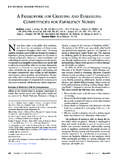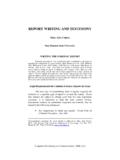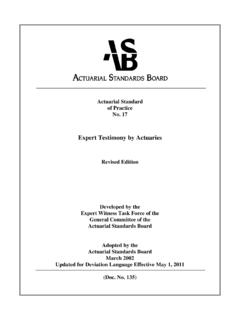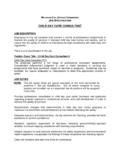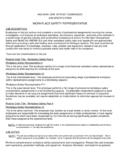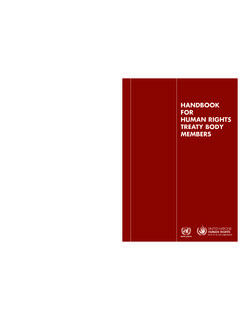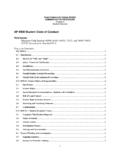Transcription of RULE 194. REQUESTS FOR DISCLOSURE
1 rule 194 . REQUESTS FOR DISCLOSURE request . A party may obtain DISCLOSURE from another party of the information or material listed in Rule by serving the other party no later than 30 days before the end of any applicable discovery period the following request : "Pursuant to rule 194 , you are requested to disclose, within 30 days of service of this request , the information or material described in Rule [state rule, , , or (a), (c), and (f), or (d)-(g)]." CONTENT. A party may request DISCLOSURE of any or all of the following: (a) the correct names of the parties to the lawsuit; (b) the name, address, and telephone number of any potential parties; (c) the legal theories and, in general, the factual bases of the responding party s claims or defenses (the responding party need not marshal all evidence that may be offered at trial); (d) the amount and any method of calculating economic damages; (e) the name, address, and telephone number of persons having knowledge of relevant facts, and a brief statement of each identified person s connection with the case; (f) for any testifying expert: (1) the expert s name, address, and telephone number.
2 (2) the subject matter on which the expert will testify; (3) the general substance of the expert s mental impressions and opinions and a brief summary of the basis for them, or if the expert is not retained by, employed by, or otherwise subject to the control of the responding party, documents reflecting such information; (4) if the expert is retained by, employed by, or otherwise subject to the control of the responding party: (A) all documents, tangible things, reports, models, or data compilations that have been provided to, reviewed by, or prepared by or for the expert in anticipation of the expert s testimony; and (B) the expert s current resume and bibliography; (g) any discoverable indemnity and insuring agreements described in Rule (f); (h) any discoverable settlement agreements described in Rule (g); (i) any discoverable witness statements described in Rule (h); (j) in a suit alleging physical or mental injury and damages from the occurrence that is the subject of the case, all medical records and bills that are reasonably related to the injuries or damages asserted or, in lieu thereof, an authorization permitting the DISCLOSURE of such medical records and bills.
3 (k) in a suit alleging physical or mental injury and damages from the occurrence that is the subject of the case, all medical records and bills obtained by the responding party by virtue of an authorization furnished by the requesting party. RESPONSE. The responding party must serve a written response on the requesting party within 30 days after service of the request , except that: (a) a defendant served with a request before the defendant s answer is due need not respond until 50 days after service of the request , and (b) a response to a request under Rule (f) is governed by Rule 195. PRODUCTION. Copies of documents and other tangible items ordinarily must be served with the response.
4 But if the responsive documents are voluminous, the response must state a reasonable time and place for the production of documents. The responding party must produce the documents at the time and place stated, unless otherwise agreed by the parties or ordered by the court, and must provide the requesting party a reasonable opportunity to inspect them. NO OBJECTION OR ASSERTION OF WORK PRODUCT. No objection or assertion of work product is permitted to a request under this rule. CERTAIN RESPONSES NOT ADMISSIBLE. A response to REQUESTS under Rule (c) and (d) that has been changed by an amended or supplemental response is not admissible and may not be used for impeachment. Notes and Comments Comments to 1999 change: 1.
5 DISCLOSURE is designed to afford parties basic discovery of specific categories of information, not automatically in every case, but upon request , without preparation of a lengthy inquiry, and without objection or assertion of work product. In those extremely rare cases when information ordinarily discoverable should be protected, such as when revealing a person s residence might result in harm to the person, a party may move for protection. A party may assert any applicable privileges other than work product using the procedures of Rule applicable to other written discovery. Otherwise, to fail to respond fully to a request for DISCLOSURE would be an abuse of the discovery process. 2. Rule (c) and (d) permit a party further inquiry into another s legal theories and factual claims than is often provided in notice pleadings.
6 So-called "contention interrogatories" are used for the same purpose. Such interrogatories are not properly used to require a party to marshal evidence or brief legal issues. Paragraphs (c) and (d) are intended to require DISCLOSURE of a party s basic assertions, whether in prosecution of claims or in defense. Thus, for example, a plaintiff would be required to disclose that he or she claimed damages suffered in a car wreck caused by defendant s negligence in speeding, and would be required to state how loss of past earnings and future earning capacity was calculated, but would not be required to state the speed at which defendant was allegedly driving. Paragraph (d) does not require a party, either a plaintiff or a defendant, to state a method of calculating non-economic damages, such as for mental anguish.
7 In the same example, defendant would be required to disclose his or her denial of the speeding allegation and any basis for contesting the damage calculations. 3. Responses under Rule (c) and (d) that have been amended or supplemented are inadmissible and cannot be used for impeachment, but other evidence of changes in position is not likewise barred.
